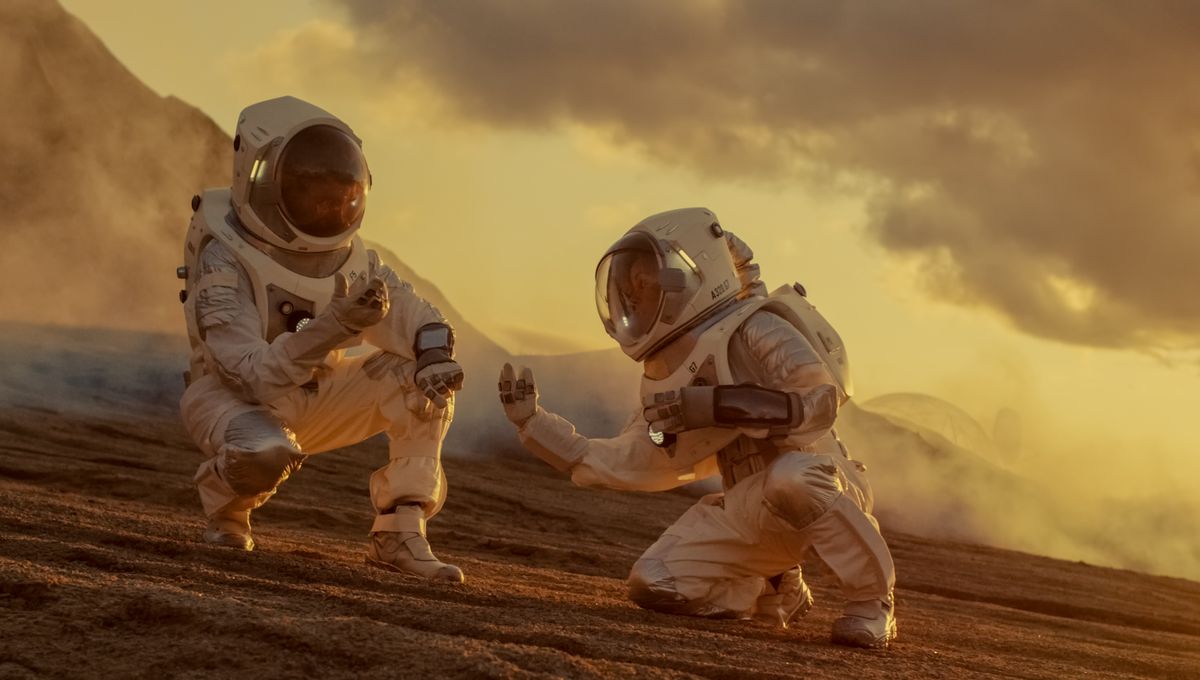
Between its oxygen-free atmosphere, exposure to radiation, and the lack of nutrients, Mars is a hostile place for human life. However, it might not be quite so unfriendly to the microbe we bring with us – including some we’d really rather didn’t flourish too much.
Three years ago, astrobiologists noted the presence of sugar in meteorites and revealed some bacteria would grow when fed on a space candy diet. That’s probably not a problem, since other conditions would probably prevent microorganisms from making themselves at home on any future asteroid bases. The same may not be true for Mars, however, so a team led by German Aerospace Venter PhD student Tommaso Zaccaria decided to see how some local microbes would go in a simulated Martian environment. Rather well, as it turns out, quite possibly too well.
One thing we know about missions to other worlds is that we will be taking hitchhikers. Even the best efforts to disinfect spacecraft come up short, as the survival of bacteria outside the ISS proves. When humans are involved, the process of keeping everything clean becomes orders of magnitude harder.
We depend on beneficial bacteria, particularly in our gut, so some of these cosmic travelers will be welcome. Others should be fairly neutral, unless Mars turns out to have life on its own that doesn’t get along with what we bring. However, future astronauts would rather avoid cases of sepsis or dysentery caused by unwelcome companions from home.
The authors placed four examples of bacteria (Burkholderia cepacia, Klebsiella pneumoniae, Pseudomonas aeruginosa, and Serratia marcescens) in media with air, soil chemistry, and UV radiation exposure like those our rovers have encountered.
The bacterial species’ responses varied. For example, B. cepacian apparently cannot grow in the presence of sodium perchlorate – common in Martian brines – unless fed with glucose. On the other hand, sodium perchlorate doesn’t seem to bother K. pneumoniae. Repeated desiccation to simulate the typical lack of water on Mars cut species numbers down quite sharply. Nevertheless, all four species survived (at least to some extent) for days or weeks, and did better when fed with imitation Martian regolith (soil) than sugar alone.
The ultimate test was the response to a suite of Martian conditions: dealing with the light, the soil, the air, and the water at once. S. marcescens in particular appears to be ready for everything Mars can throw at it, even when encountered simultaneously – and that’s even without time for evolution to do its work. Commonly seen in hospital-acquired infections, S. marcescens is known for urinary tract infections and turning wounds septic.
“At the beginning, we thought that the regolith would have a toxic effect on the cells so it would limit their growth,” Zaccaria told Sciencenews. “But instead, we saw that it was the opposite.” The authors suspect this may be because the soil particles offer a place to hide from the UV light and other threats to bacterial survival.
When (not if) pathogens accompany humans to Mars in our guts or on our skin, some can be expected to make it into the soil around the base. This work suggests they may grow whenever they get access to water, no matter how salty. Without a healthy ecosystem to control them, the danger of these pathogens infecting other astronauts is high, which represents a major concern for someone further from the nearest hospital than any human has ever been.
The finding was not entirely surprising. A 2022 study found a type of yeast could survive in the salty Martian water on the rare occasions it unfreezes. Various extremophiles have also been found to be likely to flourish on Mars. However, the fact that these four species are not only likely to accompany humans, but could be a serious problem for us once there, makes the implications much more serious.
The results are published in the journal Astrobiology.
Source Link: Mars Could Be A Haven For Bacteria That Make Humans Sick